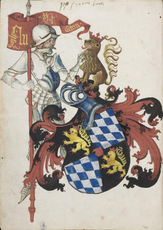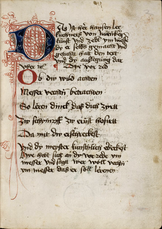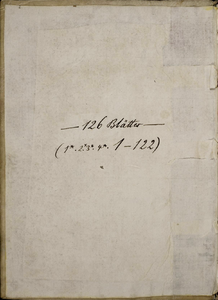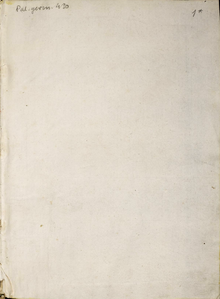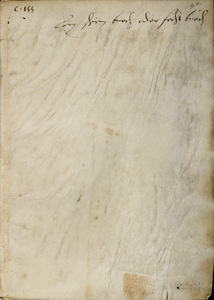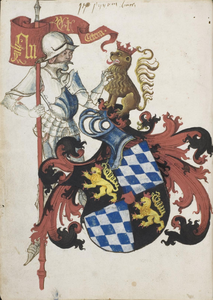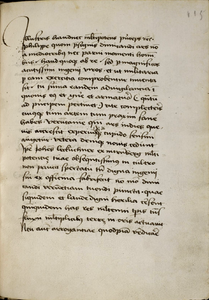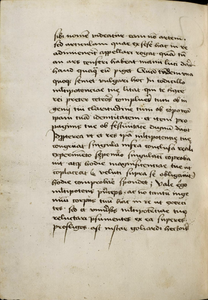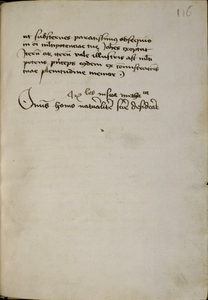|
|
| Line 56: |
Line 56: |
| | | width = 76em | | | width = 76em |
| | }} | | }} |
| − | {| class="wikitable floated master" | + | {| class="floated treatisecontent" |
| | |- | | |- |
| | ! id="thin" | <p>Image</p> | | ! id="thin" | <p>Image</p> |
| Line 108: |
Line 108: |
| | | width = 76em | | | width = 76em |
| | }} | | }} |
| − | {| class="wikitable floated master" | + | {| class="floated treatisecontent" |
| | |- | | |- |
| | ! id="thin" | <p>Image</p> | | ! id="thin" | <p>Image</p> |
Revision as of 19:20, 21 April 2017
Kunst des Messerfechtens ("The Art of Messer Fencing", Codex Palatine German 430) is a German fencing manual created in 1478 by Johannes Lecküchner and dedicated to Philip "the Upright" of Wittelsbach, Elector Palatine of the Rhine.[1] The original currently rests in the holdings of the Universitätsbibliothek Heidelberg in Heidelberg, Germany. This manuscript is believed to be the rough draft of Lecküchner's work mentioned at the end of the 1482 version, Cgm 582. As the Cgm 582 is titled Kunst des Messerfechtens, that title may also be assigned to this unillustrated draft.
Provenance
Contents
| Irv
|
Image
|
No Translation 
|
Transcription
by Michael Chidester
|
|
|
|
[Cvr]
— 126 Blatter —
(1*.2*.3*.4*. 1-122)
|
|
|
|
[1*r] Pal.germ. 430
|
|
|
|
[1*v-3*v] [Blank]
|
|
|
|
[4*r] C. 155
|
|
|
|
[4*v-1r] [Blank]
|
|
|
|
[1v] [Bavarian coat of arms]
|
|
| 2r - 114v
|
Messer by Johannes Lecküchner
|
| 115r - 116r
|
Image
|
Featured Translation 
by Grzegorz Żabiński, Russell A. Mitchell,
and Falko Fritz
|
Transcription
by Grzegorz Żabiński, Russell A. Mitchell,
and Falko Fritz
|
|
|
Illustrious and Very Mighty Prince etc Philip! Since the excellent art of fighting has not been invented by mediocres nor people of minor importance and by no means from the nature of the thing, but by magnificent men of sharpest ability, and so that military exercises be proven by it, you master rightfully this art with greatest vigilance to whatever place You will and commonly and in armour, as much as it belongs to a Prince, and You soundly have both its art and practice.
|
[115r] Illustris haudnec multipotens princeps etc. Philippe quom presignis dimicandi ars non a mediocribus nec parui momenti hominibus haudquoque ab re sed per magnificos acutissimi ingenii viros et ut militaria per eam exercitia comprobentur inuenta sit, tu summa eandem advigilancia in quouis eius et commune et armatura (quantum ad principem pertinet) rate complecteris eiusque tum artem tum praxim sane habes
|
| However, since every art increases from day to day and desire for experiencing gradually grows and finally old things give ground to new ones, Johannes Lecküchner of Nürnberg, most obedient to Your Great Might, has skillfully made from the workshop of his ability not a few points in Messer, worth Your attention, not only in fighting but also in defending, which whether indeed are worth praising and are estimated as lordly, everyone has verified in the long course of passed time and in numerous regions of the world.
|
Verumtamen quom ars indies quevis accrescit experimendique cupido sensim augetur vetera denique novis cedunt, Ipse Johannes Leckuchner ex Nurnberg multipotentie tuae obsequentissimus in cultro non pauca spectatum tuum digna ingenii sui ex officina fabrifecit non modo dimicandi verumetiam tuendi puncta quae siquidem et laude digni herilia censent quiquidem has res multenui temporis transfluxii multiplicibus terre in oris actuauit
|
|
|
Moreover, so that he not be considered as claiming some arrogance to his name, he asks it to be called not an art but a petty art, which will admonish out of itself in this matter, which, whether can be considered as an art, needs to be clarified with hand, wheresoever he is by no means reluctant.
|
Neu autem arrogantiae quodpiam vendicare [115v] sibi nomine videatur eam non artem sed articulam quae ex sese hac in re admuenerit appellari rogat quam tunc an ars censeri habeat manu luci dari haud quamque eum piget
|
| Since he himself offers a text in this vernacular petty codex to Your Great Might, who considers You more worth of this matter than many other men, because of both brilliance of Your ability and Your bodily integrity and also because of Your jollity towards books
|
Quom textem una quoque semet vulgari hoc in codicillo multipotenciae tue litat qui te huiusce rei preter ceteros complures tum ob ingenii tui claritudine tum ob corpoream ipsam tuam idemtitatem et item pro paginis tue ob festivitatem dignum ducit
|
| Therefore, so that also the very matter suit Your Great Might, he rightfully proved the points included below with true experience one after another, and today, so that it pleased Your Magnificence (as he obliged himself above), he promises to prove it today
|
Ideopropterea ut et res ipsa multipotentie tue congruat singula infra conclusa reali experimento saepe merito singulariter coprobauit atque hodie magnificentiae tue ut coplaceat (veluti supra se obligavit) hodie comprobare spondet;
|
|
|
Thus, farewell, oh Very Mighty Prince, and Johannes, most prepared in obedience to all Your Great Might, desires eagerly that You not only exercise Your great ability and body in this matter, but that You also overcome, destroy by means of this matter all the men anticipating to struggle against Your Might and You subdue them like Hector the jokers.
|
Vale ergo multipotens princeps ac non tantum ingenium corpus tuum hac in re ut exercites sed et universos multipotentiae tue reluctari praesumentes ex ea superes profliges atque instar goliardi hectoris [116v] ut substernes paratissimus obsequio in omni multipotentiae tue Johannes exoptat
|
| Again and again, farewell, oh Illustrious and Very Mighty prince, remembering about him out of compassion of Your generosity
|
Iterum atque iterum vale illustris atque multipotens princeps eiusdem ex commiseracionis tuae plenitudine memor
|
Aristotle in his Metaphysics
- “All the men by nature desire to know”[2]
|
Aristoteles in sua methaphysica
- “Omnis homo naturaliter scire desiderat”
|
|
| 116v - 122r
|
Blank pages
|
Gallery
[Digital images available for import]
Additional Resources
References
- ↑ The Cgm 582 states on folio 216v that "This material was composed by the Reverend Johannes Lecküchner, at that time of the parish in Herzogenaurach, in the year of our Lord 1478, but this book was written and completed in the 82nd year on the eve of St. Sebastian."
- ↑ Aristoteles, Metaphysica libri I-IV, 4, lib. 1, cap. 1. Translatio “vetustissima;” Translatio Jacobi Venetici
Copyright and License Summary
For further information, including transcription and translation notes, see the discussion page.

